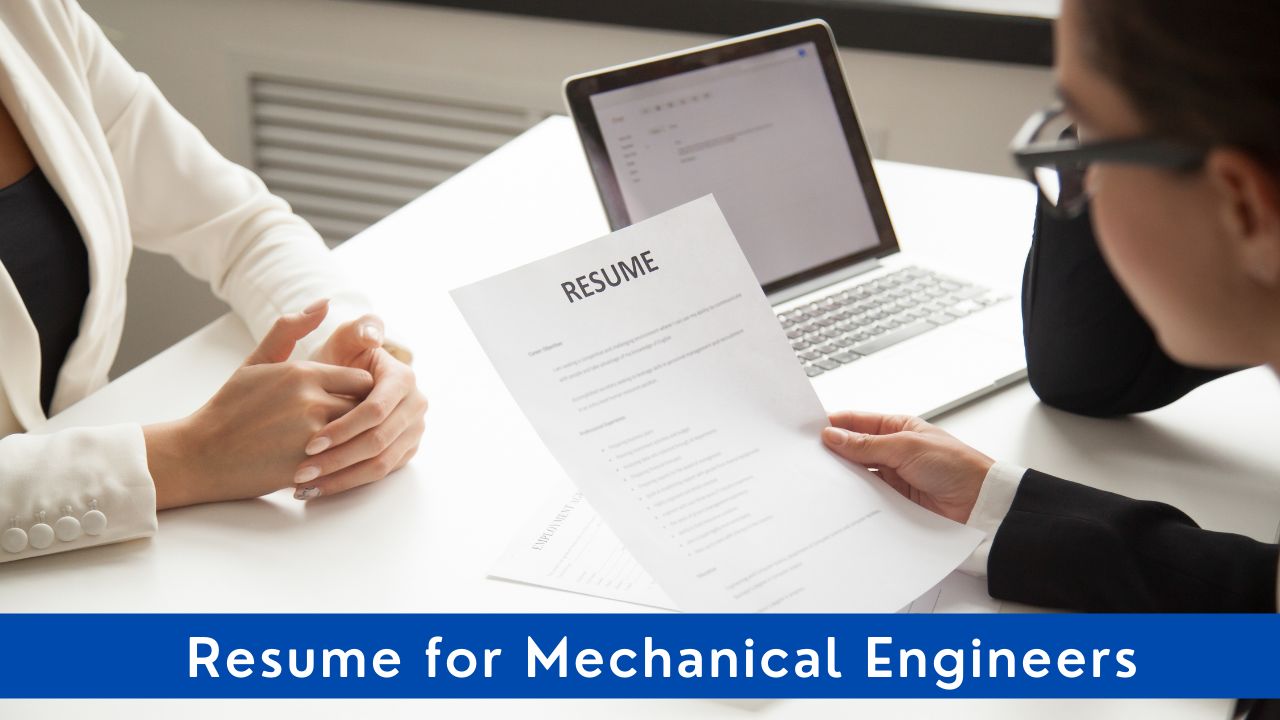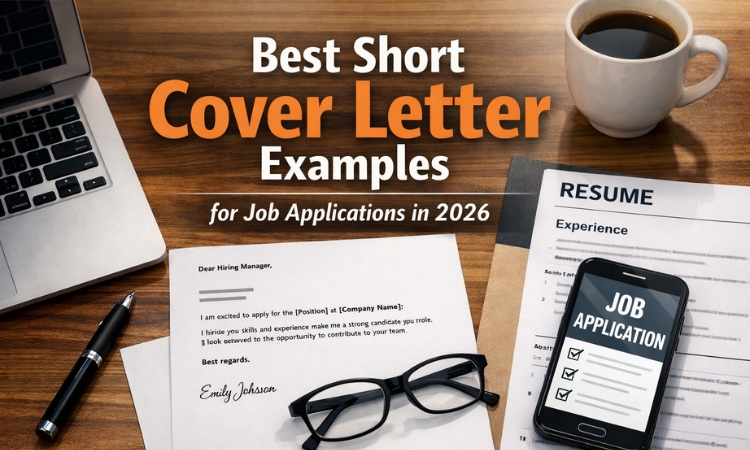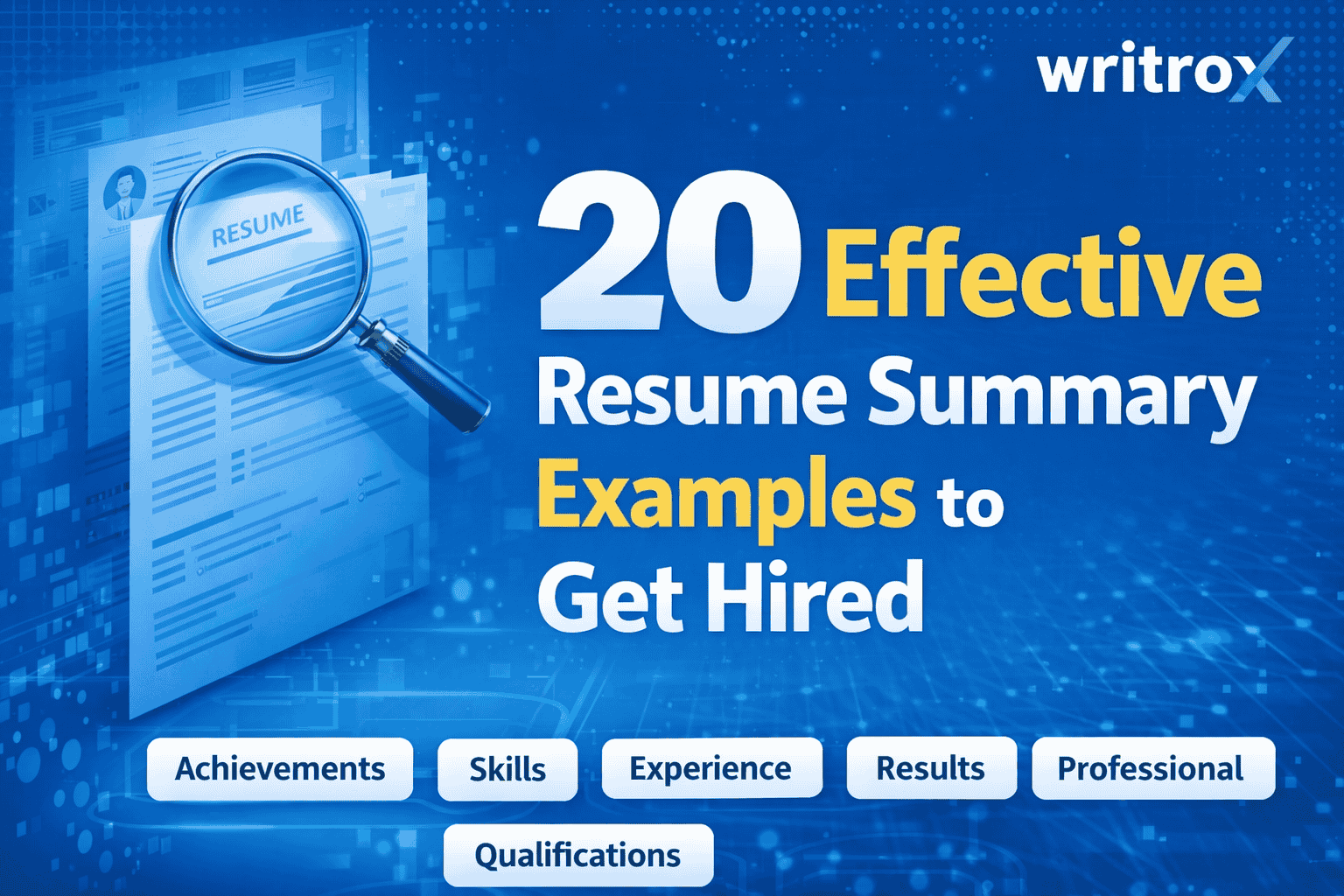The duty of a mechanical engineer is to take a product from concept to market. Mechanical engineering is known as the “mother” of all engineering disciplines since it creates all of the mechanics that make the world go round.
Mechanical engineering is important in all produced technologies, including elevators, automobiles, aeroplanes, refrigerators, and air conditioning.
Mechanical engineers are highly trained and valuable members of our society, and their pay reflects this. Because of their working understanding of everything from computer programs to structures to electrical, mathematics, and physics, they’re known as the jack-of-all-trades in engineering circles.
Use these mechanical engineer hints to emphasize your skills and create a CV that will help you land the engineering job of your dreams.
What is a mechanical engineer?
What is a mechanical engineer?
A mechanical engineer is a skilled technician who understands machine design, fabrication, and operation. Mechanical engineers may design, manufacture, and test prototypes for tools, mechanical systems, and full pieces of equipment, and they can work in a variety of industries to address the unique industrial and technological issues they confront. Mechanical engineers, in addition to classical mechanics, frequently have extensive familiarity with computers, hardware, and software. These digital tools assist them in conceptualizing and executing their highly detailed designs.
What is the difference between a fresher and a more experienced resume?
What is the difference between a fresher and a more experienced resume?
A fresher resume is a professional document used by someone with little or no work experience to present their qualifications for a position. Because they do not have past positions to highlight in detail, fresher candidates benefit from reordering the sections of their resumes to emphasize their training and academic background. Fresher resumes are a valuable resource for professionals in all disciplines who are looking for their first significant career opportunity.
How to write a resume for a mechanical engineer fresher
How to write a resume for a mechanical engineer fresher
When drafting a resume for your first mechanical engineer job, follow these steps:
1. Do some research on the job opening.
1. Do some research on the job opening.
If you’re thinking about sending your CV to a potential employer, make sure you do your homework first. This comprises looking over the job description provided by the employer as well as doing more in-depth research about the company’s industry, services, and business model. You can adapt your CV to meet those precise specifics when you obtain a deeper understanding of the employer’s operations and engineering issues. Hiring managers give top priority to individuals whose resumes demonstrate a genuine and specific desire to work for their organization.
As a newcomer, you’ll also want to make sure the company accepts applications from people with little or no experience. If you don’t have a lot of work experience, it’s vital that you look for opportunities that directly relate to your academic curriculum so you can confidently explain to an employer how your technical expertise will benefit them.
2. Design your header.
2. Design your header.
Your resume’s header comes first. It gives the company your contact information in an easy-to-read style so they can simply contact you for an interview. It’s also crucial that your name shines out so that anyone who sees your resume can associate the information with the correct person. While the body of your resume can be typed in 12 or 14 font and left-justified, the header should be centered and in a somewhat bigger font size. Make sure to include your: in your header.
- Full name
- Residential address
- Phone number
- Email address
- Full name
- Residential address
- Phone number
- Email address
3. Create a resume objective for a mechanical engineer.
3. Create a resume objective for a mechanical engineer.
- A description of your work ethic: include a few adjectives or phrases in your resume objectives that highlight your best professional habits and traits.
- A description of your work ethic: include a few adjectives or phrases in your resume objectives that highlight your best professional habits and traits.
- Your most important abilities are: Resume objectives detail the talents you’ve acquired via your education and allow you to explain how you’d use them on the job.
- Your most important abilities are: Resume objectives detail the talents you’ve acquired via your education and allow you to explain how you’d use them on the job.
- Reference to your credentials: resume objectives often state how long a professional has worked in the sector, but as a new graduate, you can simply state your status. This expresses your lack of work experience succinctly.
- Reference to your credentials: resume objectives often state how long a professional has worked in the sector, but as a new graduate, you can simply state your status. This expresses your lack of work experience succinctly.
- Your objectives: explain what you expect to accomplish by working for the organization in your resume objectives. Your aims should, in theory, be very similar to the employers’, implying that hiring you would be a win-win situation.
- Your objectives: explain what you expect to accomplish by working for the organization in your resume objectives. Your aims should, in theory, be very similar to the employers’, implying that hiring you would be a win-win situation.
4. Give specifics about your educational background.
4. Give specifics about your educational background.
The next portion of your resume explains where and when you went to college, as well as what degree you received. Typically, the educational experience is listed last on a resume, yet as a new graduate, your education is your most valuable asset. Make sure to include any academic achievements you’ve had, such as graduating with honors or a high CPI.
5. Make a list of both your hard and soft abilities.
5. Make a list of both your hard and soft abilities.
Make a distinct section to highlight your most important skills and abilities. If you have a lot of skills but little experience, consider categorizing them into categories like technical, soft, hard, or industry-specific skills. Examine the job description for the position and make a note of any keywords that appear throughout the text. You might include these in your talents section to ensure that your abilities match the needs of the business. The following are examples of common mechanical engineering skills:
- Exceptional computer and technical skills
- Skills in data analysis
- Skills in mechanical design
- Mathematical and statistical prowess
- Pay close attention to the details.
- Machine and manufacturing process knowledge
- Ability to lead
- Skills in time management
- Exceptional computer and technical skills
- Skills in data analysis
- Skills in mechanical design
- Mathematical and statistical prowess
- Pay close attention to the details.
- Machine and manufacturing process knowledge
- Ability to lead
- Skills in time management
6. Share relevant professional experience
6. Share relevant professional experience
Even if you have never held a full-time job, you may have relevant professional experience to discuss with a potential employer. Internships and research assistance complement your academic background and demonstrate that you searched out opportunities to improve your abilities. Include the name of the institution or organization to which you contributed, as well as the dates of your involvement and the roles you played. Pay special attention to any obligations that are similar to those listed in the job description.
7. Edit and proofread
7. Edit and proofread
After you’ve completed all of the sections of your resume, proofread it thoroughly. Your resume should be devoid of mistakes to impress an employer. A well-revised CV also demonstrates the same level of attention to detail that a mechanical engineer requires. Here are some resources to help you ensure that the content of your resume is flawless:
- Proofreading apps: There are many free proofreading programs available online that will check your content for spelling and grammar errors. These apps also provide advice on how to improve your sentence structure and correct them.
- Proofreading apps: There are many free proofreading programs available online that will check your content for spelling and grammar errors. These apps also provide advice on how to improve your sentence structure and correct them.
- Reading aloud: in addition to being technically precise, your resume should read naturally and include easy-to-understand information. When you read your resume out loud, you can see when your sentences become complex or clunky so you can make changes.
- After preparing your resume on a computer, you may find it helpful to print it out and modify it on paper. This will give you a new viewpoint and enable you to detect problems that you may have been accustomed to seeing on your computer screen.
- Reading aloud: in addition to being technically precise, your resume should read naturally and include easy-to-understand information. When you read your resume out loud, you can see when your sentences become complex or clunky so you can make changes.
- After preparing your resume on a computer, you may find it helpful to print it out and modify it on paper. This will give you a new viewpoint and enable you to detect problems that you may have been accustomed to seeing on your computer screen.
- Using career counseling services: Many universities provide career counseling services to assist fresh graduates in their job hunt. A university employee can look through your resume and provide feedback.
- Using career counseling services: Many universities provide career counseling services to assist fresh graduates in their job hunt. A university employee can look through your resume and provide feedback.
Template for a resume for a mechanical engineer who is just starting out.
Template for a resume for a mechanical engineer who is just starting out.
As a fresher, you can use the following template to create your own mechanical engineer resume:
[Name]
[street address ]
[PIN Code, City]
[Phone number] is a placeholder for [Phone number].
[email protected]
[Purpose of resume]
Education
[Name of the University]
[Attendance dates]
[Academic performance or accolades, if applicable] | [Degree]
Skills
[Skill]
[Skill]
[Skill]
[Enterprise or institution]
[Position], [Involvement dates]
[Duty]
[Duty]
[Duty]
Example of a resume for a mechanical engineer who is new to the field.
Here’s an example of a resume for a mechanical engineering position that uses the template above:
35 Vivekanand Marg NEW DELHI 110 001 (022) 234509122 advik.kumar@email.com Advik Kumar 35 Vivekanand Marg NEW DELHI 110 001 (022) 234509122 advik.kumar@email.com
Motivated and detail-oriented recent mechanical engineering graduate eager to contribute to Central Point Engineering’s team her expertise of thermal devices and subsystems.
Education
Education
August at Delhi’s Tech Institute
Education
Education
Tech Institute of Delhi
August 2017-May 2021
B. Tech in Mechanical Engineering | 79% (Distinction)
Skills
Skills
- Proficient in AutoCAD and Matlab design and simulation technologies
- Experience with conducting thermal analyses
- Excellent time-management skills
- Able to operate lathes, welding equipment, and various hydraulic equipment
- Proficient in AutoCAD and Matlab design and simulation technologies
- Experience with conducting thermal analyses
- Excellent time-management skills
- Able to operate lathes, welding equipment, and various hydraulic equipment
Experience
Experience
- January 2019-April 2021: Tech Institute Engineering Lab Research Assistant
- Open-source data was gathered to help in the creation of machine prototypes.
- Assisting with welding, material preparation, and finishing.
- At all times, ensured that the research lab was clean and free of risks.
- System assessments were carried out to investigate thermal conditions and find potential improvements.
- January 2019-April 2021: Tech Institute Engineering Lab Research Assistant
- Open-source data was gathered to help in the creation of machine prototypes.
- Assisting with welding, material preparation, and finishing.
- At all times, ensured that the research lab was clean and free of risks.
- System assessments were carried out to investigate thermal conditions and find potential improvements.
The resume is your first point of contact with recruiting managers. So, instead of using clichés and generalities, use action words to provide specific examples of how you suit the description they’ve provided.













